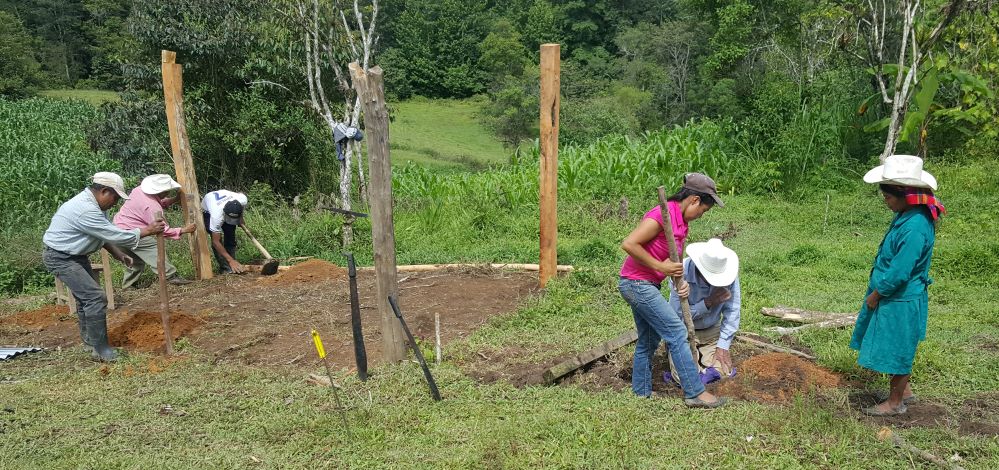Family farming in Latin America and the Caribbean strengthens its capacity to adapt to climate change

San Jose, 7 August 2020 (IICA) - The “Knowledge Management for the Adaptation of Family Farming to Climate Change” project (INNOVA-AF) is implementing 11 initiatives to capitalize on successful experiences, practices and knowledge related to the adaptation of family farming to climate change, in areas with limited water resources that are representative of Latin America’s arid biomes.
INNOVA-AF is implemented by the Inter-American Institute for Cooperation on Agriculture (IICA) with funding from the International Fund for Agricultural Development (IFAD). The initiatives to be supported were selected earlier this year, following a call for proposals launched last year by the competitive fund in Bolivia, Brazil, Colombia, Ecuador, Guatemala, Honduras, Mexico and the Dominican Republic.
Miguel Altamirano, Coordinator of INNOVA-AF, indicated that the initiatives will be carried out over the course of 14 months, with funds totaling USD 884,000 and a counterpart contribution of USD 616,000 from the partnerships. The IICA Delegations in each country will provide technical support to implement the initiatives, which will be tied to IFAD projects and will involve key public and private stakeholders in each territory.
Leonardo Bichara, IFAD Program Officer in Brazil, noted that efforts are being undertaken to increase participation by women and youth that represent indigenous peoples, communities of African descent, or other vulnerable groups, in order to strengthen the capacity for resilience of their family production systems as well as improve their livelihoods.
Altamirano and Bichara explained that the project also promotes undertakings that are geared towards guaranteeing economic sustainability, protecting natural resources and water sources, and improving living conditions for the beneficiaries.
The initiatives are led by the following organizations:
- Union of Family Farming Organizations of Borborema (POAB) and the Alternative Technology Service (SERTA), in Paraíba, Brazil;
- Populorum Pogressio Ecuadorian Fund (FEPP) in Loja, Ecuador;
- Chiquimula Association for Socioeconomic Services and Development (ASEDECHI) and the Ch'orti' Regional Peasant Association (ASORECH) in Chiquimula, Guatemala;
- Honduran Coffee Institute (IHCAFE) and the Alternative Community Marketing Network (Red COMAL) in La Paz, Honduras.
On the other hand, knowledge management initiatives will be carried out in Bolivia’s Cinti territories, in the western region of the Dominican Republic, in Nuevo Leon, Mexico and in Colombia’s Meta department. The objective of these initiatives will be to systematize South-South cooperation processes and actions in the eight countries involved in INNOVA-AF.
Efforts will also be undertaken to capitalize on successful initiatives related to small-scale irrigation systems, rainwater reuse for domestic purposes, integrated public-private management of water resources in territories, promotion of agro-forestry and agro-ecological systems, development of marketing strategies and platforms, and capacity building through South-South and triangular cooperation.
About INNOVA-AF
The project seeks to strengthen the capacities of peasant families that form part of territorial systems of family farming and currently have low resilience to the impacts of climate change in semi-arid territories and mountain systems, to participate actively in rural transformation processes in Latin America and the Caribbean, by implementing good practices in territories that share similar biophysical and socioeconomic conditions.
About IFAD
IFAD is an international financial institution and specialized United Nations agency that invests in rural populations, empowering them to reduce poverty, increase their food security, improve their nutrition and strengthen their resilience.
More information:
Miguel Altamirano, General Coordinator of the INNOVA-AF Project